Vehicle problems are inevitable. From one point or the other, you’ll experience suspension component failures, electrical problems, engine failure, transmission issues, and engine overheating issues.
Engine overheating is one of the most serious problems that pose catastrophic harm to your vehicle. If the engine temperature gets too hot, it may warp or crack the engine block.
This will drop expensive repair bills on the table, and sometimes it may be irreparable. But why would my car be overheating in the first place? In this article, we’ll discuss common reasons for overheated engines.
9 Things that can Cause a Car to Overheat!
A vehicle engine produces too much heat as it is running. For this reason, auto manufacturers built a cooling system to keep the engine running properly and at normal temperature. This system comprises several components.
The cooling components work in harmony to achieve a common goal. Whenever any of these components go bad, it’ll affect the overall functioning of the entire cooling system.
If you experience excessive heat in the engine compartment, one of the cooling system components is malfunctioning. Here are the common reasons that could cause vehicle overheating.
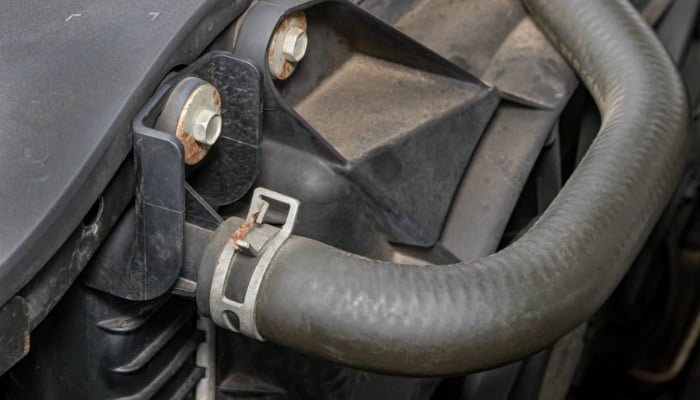
1. Damaged or Blocked Hoses
The flow of coolant in a vehicle passes through several hoses. If any of these hoses are clogged, damaged, or wrapped, it’ll restrict engine coolant flow in the system. An inappropriate flow of coolant will cause engine overheating.
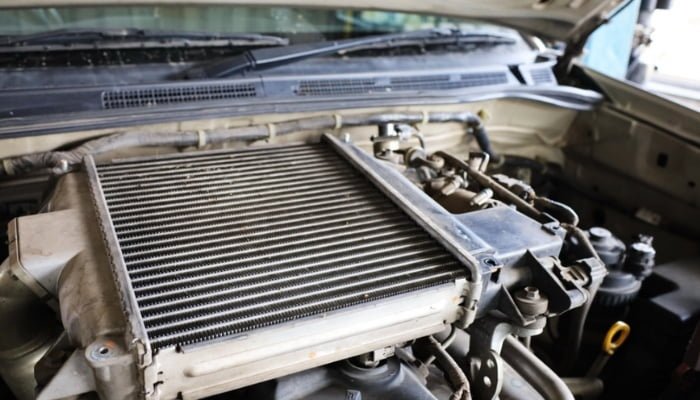
2. Clogged Radiator And Cap
The radiator is where hot coolant from the engine returns to lose the excessive heat from the engine. As the coolant returns to the radiator, it passes through the fins in the radiator.
These fins expel the heat from the coolant, and the radiator fan blows the heat away. So, if the radiator is punctured or has mechanical/physical damage, it’ll not carry out its job effectively.
A clogged radiator cannot cool the hot coolant that returns from the engine block. It’ll also restrict proper coolant flow to the engine block.
This will make the antifreeze hot. Hot coolant will not keep the engine at a safe temperature, making it overheat.
Radiator caps ensure the antifreeze stays intact in the radiator. If it is damaged, it’ll cause coolant leaks.
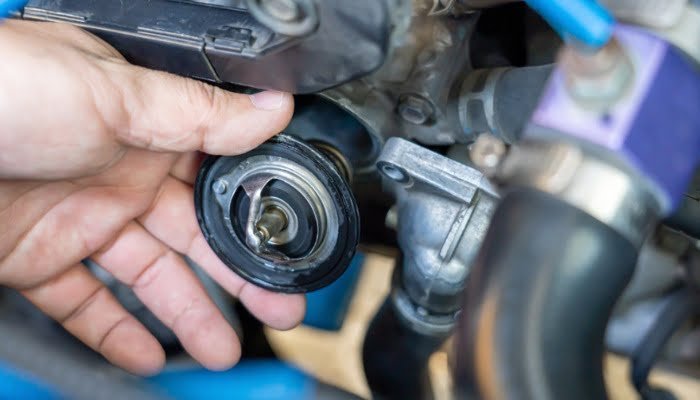
3. Lousy Thermostat
The thermostat is an essential cooling system component that regulates coolant flow from the radiator to the engine.
When you turn on your vehicle, the thermostat remains closed and doesn’t grant coolant access to the engine.
The moment the engine heats to normal operating temperature, the thermostat will open a passage for the coolant to flow in.
The thermostat is engineered not to allow the coolant to pass into the engine when it is too cold, so it won’t prevent it from getting to the normal operating temperature.
What if the thermostat remained closed even when the engine had reached its normal operating temperature? It will cause engine overheating and lead to catastrophic system component damage.
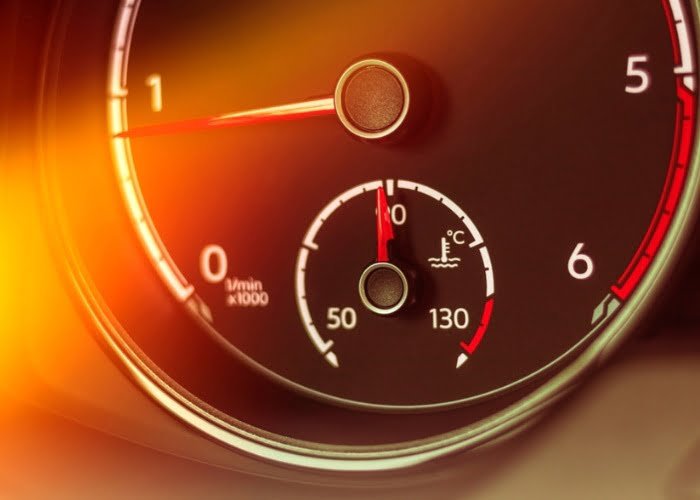
4. Low Coolant Levels
As alluded to above, every vehicle engine generates excess heat under normal operation. It is the engine coolant that travels to the engine to absorb the heat and import cool coolant fluid to keep the engine cool.
Here’s the thing: the coolant absorbs heat from the engine block and takes it to the radiator, which cools the coolant. It is from the radiator that cool coolant travels to the engine to continue this heat-absorbing process.
That said, if the coolant levels go beyond the minimum range, it’ll not perform its duty effectively. This will cause the vehicle temperature to go uphill.
For this reason, we recommend checking fluid levels regularly. Always check the levels of water when checking the engine oil.
When refilling the wiper washer fluid, check and top up the coolant if necessary.
If you have an engine coolant leak, ensure to track where the leak is coming from and fix it before it causes a significant engine overheat.
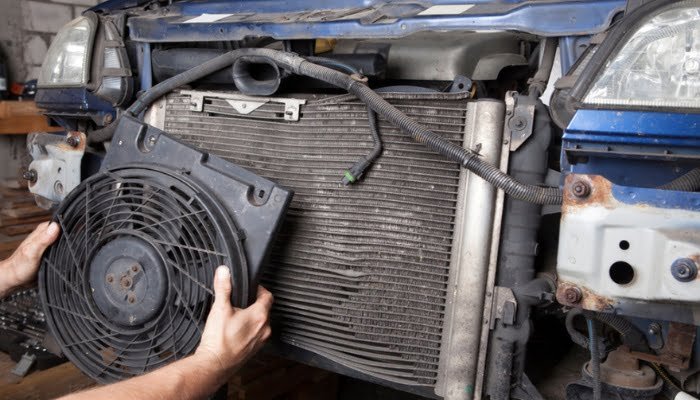
5. Faulty Radiator Fan
We explained that air blew away heat in the engine coolant whenever it travels to the radiator. I don’t mean ambient air. Surrounding air can not pull heat from the radiator.
For this reason, vehicle manufacturers install radiator fans on every vehicle. The cooling fan pulls the heat from the radiator. So, if the fan is broken, it’ll affect the overall cooling process, leading to engine overheating.
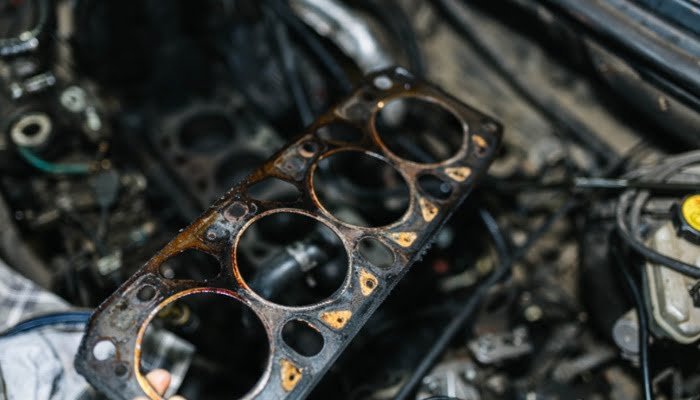
6. Blown Head Gasket
The head gasket is found between the engine block and the cylinder head. It also directs the engine oil and the coolant to go into their designated galleries. If it blows, it’ll cause the coolant to mix with the engine oil.
Sometimes, this will cause visible leaks around the cylinder areas. It can also happen without a visible leak.
A vehicle with a blown head gasket will emit white smoke from the exhaust pipes. You’ll also notice a white-milky substance in the engine oil or coolant.
It is important to note that one or more of the reasons outlined in this article causes a blown head gasket. A head gasket can’t blow on its own.
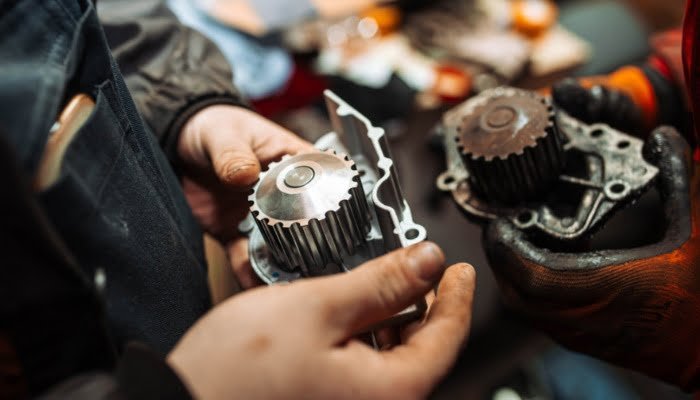
7. Faulty Water Pump
The water pump is another vital component of the cooling system. It circulates coolant to all nook and cranny water galleries in the engine compartment.
By default, coolant travels from the radiator through the radiator hoses to the engine. The moment it gets inside the engine, the water pump exports it to every part of the engine via the water galleries.
If the water pump fails and cannot carry out its job effectively, your engine will overheat within a short period.
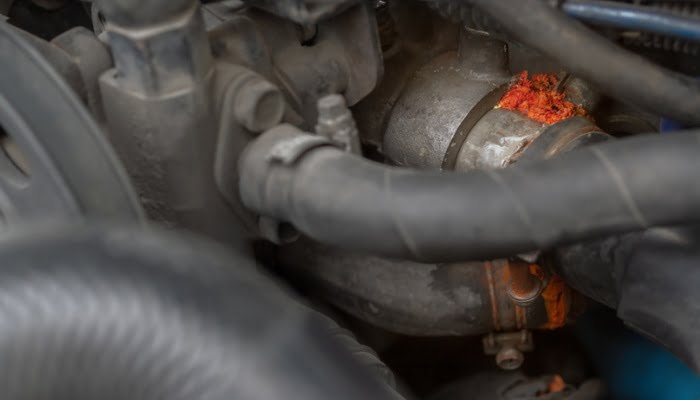
8. Engine Coolant Leak
Engine coolant should stay intact within the cooling system components. As common as it may look, it plays a critical role in the cooling process. In short, a vehicle cannot run effectively without engine coolant.
If a coolant leak exists anywhere in the system, the coolant level will reduce. This will disrupt the coolant flow, and the engine will overheat.
9. Hot weather
Sometimes, hot weather can cause a vehicle’s engine to run hot. However, hot weather is unlikely to cause engine overheats in modern cars. If you have a modern car and experience overheating on hot summer days, it shows you have an underlying problem that needs attention.
Final words
At this juncture, you won’t be wondering, ‘Why would my car be overheating?’ We have outlined the potential reasons why a car should be overheating.
What’s next?
Spot it earlier and take action. There’s no best option for fixing engine overheating than tracking and fixing it at an earlier stage unless you want to drop expensive repair bills on the table.
Ignoring system overheating for an extended period is never an option.



